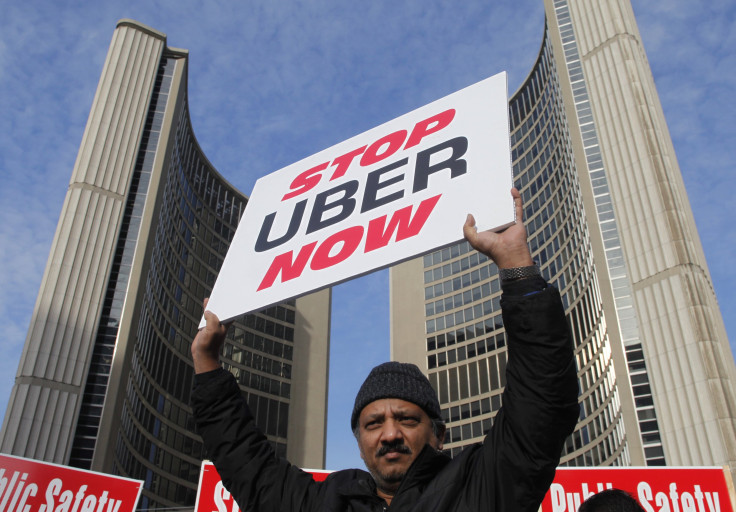Secret Uber Greyball Tool Could Get Car Company In Trouble

A group representing traditional taxi companies in upstate New York called upon the state's attorney general on Wednesday to investigate if Uber broke state law by using its recently revealed "Greyball" technology to avoid regulators and law enforcement
Upstate Transportation Association president John Tomassi wrote a letter to New York Attorney General Eric Schneiderman asking for a probe after the New York Times revealed that Uber used the Greyball program to identify local government officials and regulators seeking to use the service. The technology then allowed Uber to present official and regulators with an alternative version of the company's flagship app with fake rides and cars to impede investigations.
The Times said the program remains in use outside of the U.S., and only cited Boston and Las Vegas as cities the program was used in domestically. But Tomassi wants Schneiderman to investigate whether the app was used in New York. The state's legislature has been considering whether to allow Uber to operate statewide.
“Uber's use of Greyball exemplifies a corporate culture that presents a clear and present threat to New Yorkers and demands a thorough investigation,” Tomassi wrote to Schneiderman. The attorney general's office told the New York Daily News it was reviewing Tomassi's letter.
On Wednesday, Uber said it was reviewing the use of its Greyball technology and limiting its use.
"We have started a review of the different ways this technology has been used to date. In addition, we are expressly prohibiting its use to target action by local regulators going forward," Joe Sullivan, Uber's chief security officer, wrote in a blog post. "Given the way our systems are configured, it will take some time to ensure this prohibition is fully enforced."
Uber has been dealing with a series of public relations crises in recent months. The company lost 200,000 users after it didn't participate in a strike during protests against President Donald Trump's travel ban in January. Then in February, a former employee went public with an account of sexual harassment at the company. Later that month, Bloomberg published a video of CEO Travis Kalanick arguing with a driver about fares.
On Tuesday, Kalanick announced he was looking for a COO to help run the company.
© Copyright IBTimes 2024. All rights reserved.






















